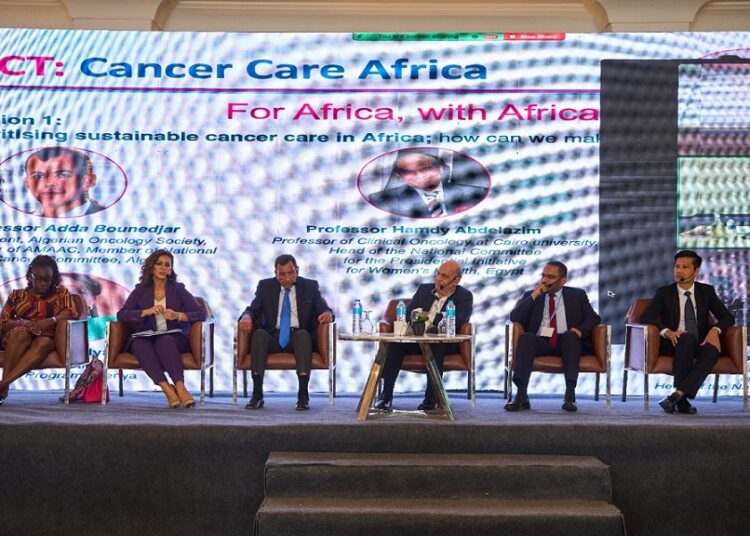AstraZeneca and health partners launched an initiative to transform outcomes for cancer patients across Africa.

Announced on the margins of the UN Climate Change Conference 2022, COP27, under the patronage of the Egyptian Ministry of Health, the Accelerating Change Together; Cancer Care in Africa (ACT;CCA) programme provides a platform for partners to co-create cancer care solutions that close the gaps in existing patient care pathway, from diagnosis through to treatment and beyond.
At the inaugural event, government representatives, leading clinical and health experts, patient advocates, and private sector representatives signed the ACT;CCA Coalition Declaration to reaffirm their joint commitment to advancing equitable cancer outcomes for all Africans.
“While cancer treatment developments are moving quickly, equitable access to these innovations is not there for all. Our ambition is to nurture the cancer care ecosystem in Africa, bringing together local stakeholders to co-create solutions and encourage long-term investment that leads to equitable cancer outcomes. We need joint action to reverse the alarming increase in Africa’s cancer burden, by addressing the unique barriers to cancer diagnosis and treatment, as well as building capacity that helps to make innovative care accessible to patients,” said Pelin Incesu, Area Vice President for the Middle East and Africa, AstraZeneca.
ACT;CCA focuses on driving impact in lung, breast and prostate cancer through capacity building, early screening and diagnosis and patient empowerment. It is the regional chapter of the global Accelerating Change Together (ACT) for Cancer Care, an AstraZeneca-led effort to revolutionize the way cancer is diagnosed and treated to drive improvements in patient outcomes.
Over the next three years, ACT;CCA aims to drive screening and diagnostics covering one million people across cancer types, and to provide training for more than 10,000 healthcare professionals across 100 oncology centres.
The programme is led by a steering committee of doctors, oncology institutions and advocacy groups to guide policy intervention, share learnings across borders, and put cancer patients at the centre. Members will meet on a regular basis to drive progress on cancer initiatives.
Dr Mohsen Mokhtar, Professor of Clinical Oncology and Managing Director of Cairo University Cancer Center, President of Can-Survive-Egypt, said collaboration was key to improving cancer outcomes. “Each country joining the coalition invests heavily in cancer care programmes. We understand that by working together to develop a network that stretches beyond borders, we can close the gaps across the patient care pathway and provide solutions that improve outcomes and transform the patient journey not only for our own citizens, but across the continent.”
Dr. Mohamed Hassani, Assistant Minister of Health and Population for Public Health Initiatives Affairs, and AstraZeneca’s Country President for Egypt Dr. Hatem Werdany, signed a Memorandum of Understanding (MOU) to enhance healthcare as part of the President’s Egyptian Women’s Health Initiative. The collaboration aims to strengthen the capabilities of health service providers in oncology, increase cancer awareness among the public, and bolster diagnostic capacities.
Over the coming months, more local initiatives under the ACT;CCA umbrella will be announced in Algeria, Morocco and Kenya.






Discussion about this post